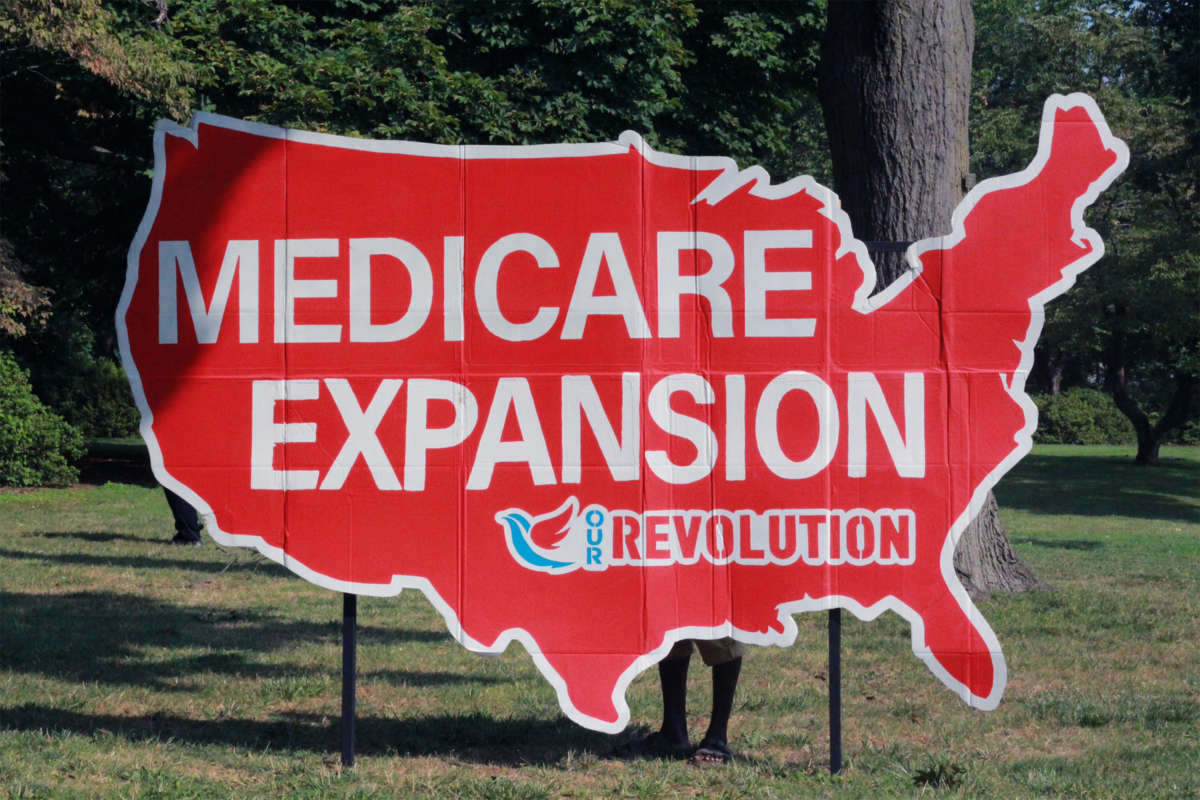Defying their right-wing political leaders, South Dakota voters on Tuesday approved a constitutional amendment to expand the state’s Medicaid program under the Affordable Care Act, a move that will extend public health insurance coverage to around 45,000 low-income people.
With Tuesday’s vote, which currently sits at 56% in favor of the amendment and 44% against, South Dakota is set to become the seventh state to expand Medicaid through a ballot measure, keeping the undefeated streak for Medicaid initiatives intact.
“We’re glad that South Dakota voters saw that helping our neighbors get healthcare is the right thing to do,” Dave Kapaska, a retired hospital executive and co-chair of the American Heart Association’s volunteer cabinet for Medicaid expansion, said in a statement sent out by South Dakotans Decide Healthcare, the group that led the ballot campaign.
Approval of the ballot measure came months after South Dakotans rejected a GOP-backed constitutional amendment that raised the threshold for passage of most ballot initiatives from a simple majority to 60%, which would have spelled defeat for Medicaid expansion.
Prior to Tuesday, South Dakota was among the dozen Republican-controlled states that refused to expand Medicaid coverage under the ACA, depriving millions of people across the U.S. of lifesaving care. Under current South Dakota law, as Vox’s Dylan Scott explained Wednesday, “childless adults of working age cannot qualify for coverage at all.”
“Pregnant women, children, and the elderly can currently receive Medicaid benefits, but working parents must have a very low income — less than 63% of the federal poverty level, about $17,500 for a family of four — to enroll,” Scott added.
Zach Marcus, the campaign manager for South Dakotans Decide Healthcare, said in a statement that “there are thousands of people in South Dakota who are stuck in the middle.”
“They’re people who are making too much money to qualify for Medicaid, but still don’t make enough money to qualify for insurance on their own,” said Marcus.
Once Medicaid is expanded in South Dakota despite opposition from the state’s Republican legislature and GOP Gov. Kristi Noem, people between the ages of 18 and 65 who earn less than 133% of the federal poverty line —roughly $37,000 a year — will be eligible for coverage under the program.
“A dozen years after passage of Obamacare, there is still ideological opposition among many red state politicians to expanding Medicaid,” notedLarry Levitt, executive vice president for health policy at the Kaiser Family Foundation. “When voters have been able to weigh in directly like in South Dakota, the results are different.”
Press freedom is under attack
As Trump cracks down on political speech, independent media is increasingly necessary.
Truthout produces reporting you won’t see in the mainstream: journalism from the frontlines of global conflict, interviews with grassroots movement leaders, high-quality legal analysis and more.
Our work is possible thanks to reader support. Help Truthout catalyze change and social justice — make a tax-deductible monthly or one-time donation today.
